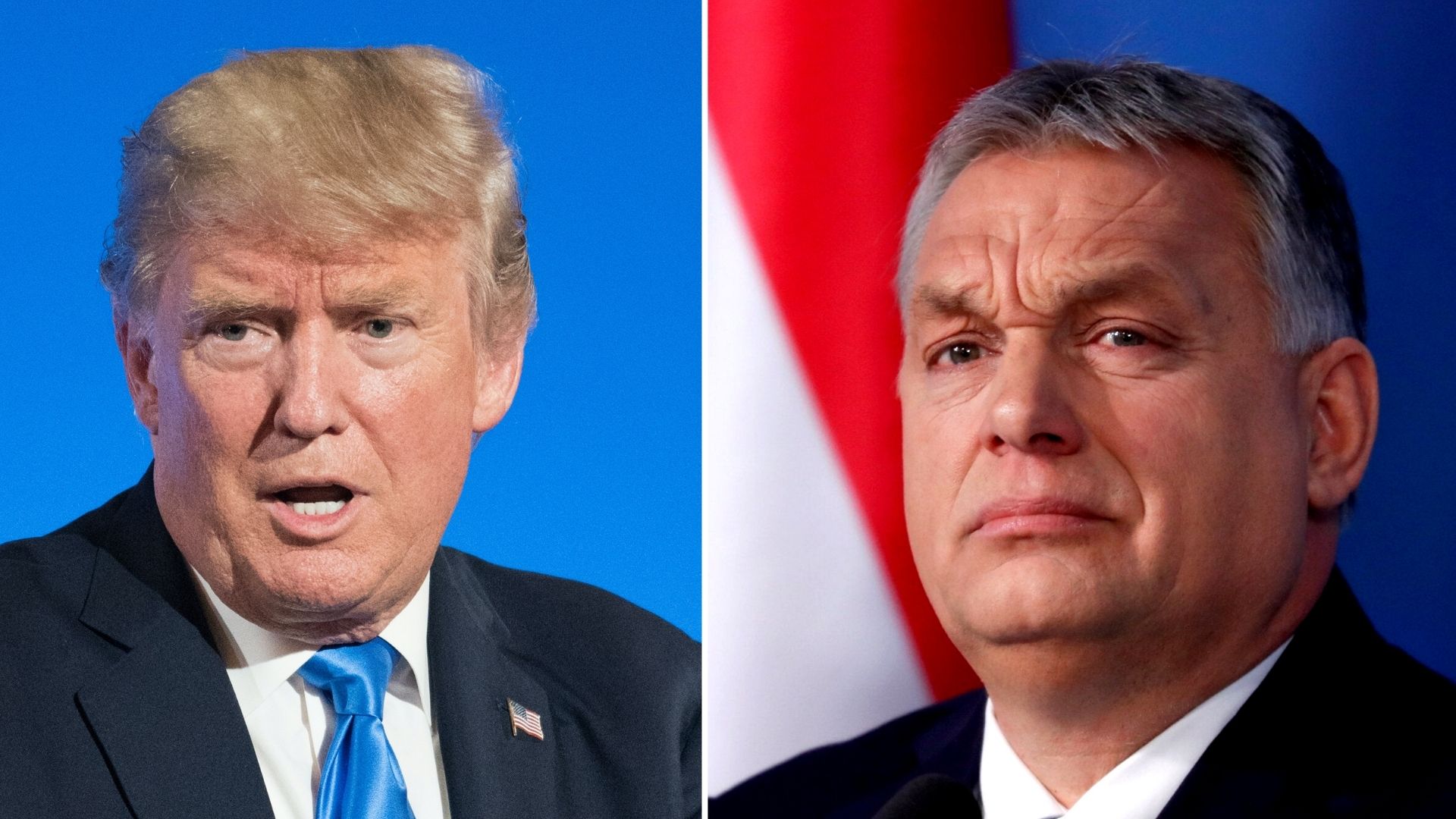The same misinformation campaign used in the 2016 and 2020 U.S. elections to smear Donald Trump is being used against Hungarian Prime Minister Viktor Orbán, with left-wing media outlets attempting to tie Orbán’s resounding electoral victory on Sunday to his past relationship with Russian President Vladimir Putin.
In 2020, U.S. news networks opposed to Trump, such as CNN, used the entire topic of Russia as a domestic political weapon. When news broke of Hunter Biden’s lost laptop containing clear evidence that he participated in corrupt dealings in Ukraine, Russia, and China, these networks raced to label it a Russian plot to influence the elections.
Just recently, however, nearly every liberal news outlet, including the New York Times, had to admit that they were wrong, and that the laptop story was true all along. They, unsurprisingly, still deny any purposeful distortion of the facts in order to protect their favored presidential candidate. The 51 intelligence officials who openly lied that the laptop was tied to a Russian intelligence campaign have also refused to apologize or even respond to the latest revelations.
[pp id=33048]
What worked during the U.S. election will no doubt work against the EU’s number one enemy: Viktor Orban, or so the global progressive establishment thought. Russia’s invasion was seen as an incredible opportunity in their efforts to remove the Hungarian leader from power. They believed they could transform Moscow and Budapest’s past relationship, which was based on mutual interests, into a nefarious conspiracy.
Everyone from Scandinavian television networks to major Western media outlets were churning out bizarre ‘Putin’s lapdog’-type stories days before the Hungarian elections in an effort to influence the election. These outlets even resorted to interviewing the most vicious of Hungarian liberal opposition figures, such as Ákos Hadházy, whose is best known among Hungarian citizens as the politician who held up a large sign in parliament during a debate with the words: “A horse’s d**k.”
Although the leader of the Hungarian opposition, Péter Márki-Zay, denied claims that he had asked Ukrainian President Volodimir Zelensky for political support before the elections, talks between the two did in fact take place, and Zelensky and a number of other Ukrainian politicians did in fact engage in harsh criticism against Orbán just days before the elections, falsely accusing him of being the “only one in Europe” to publicly back Russia and make “no effort to stop the war.” These claims were made despite Hungary accepting the most Ukrainian refugees per capita in the world.
Zelensky’s push to aid the opposition before the election did not go unnoticed in Budapest, and on election night the re-elected prime minister singled out the Ukrainian leader as one of his international “opponents,” who lobbied for the Hungarian left.
[pp id=33120]
The morning after the elections, there was one pervasive headline dominating Western newspapers: Orbán had won because, or despite, his “close ties to the Kremlin.”
“A jubilant Mr. Orban has declared victory, with his Kremlin-backed Fidesz party,” declared the once conservative Daily Telegraph. The mouthpiece of the German left-wing government, the Süddeutsche Zeitung, went so far as claiming an outright lie, wiritng that “On the night of the election, he (Orbán) unashamedly called Ukrainian President Volodymyr Zelenskiy a ‘loser.'” The far left BBC, not wanting to be left behind in bashing Hungary, wrote, “Hungary election: Viktor Orbán’s victory hailed by Putin.”
The New York Times, not really worried about factuality or even a semblance of objectivity any longer, published a headline claiming that “Pro-Putin Leaders in Hungary and Serbia Set to Win Re-election”.
There were literally hundreds of similar provocative headlines around the world, not giving a thought about the fact that there are other current or former leaders in Europe with much more cordial mutual relationships with Moscow (such as Germany), with an exponentially larger trade balance (the majority of EU member states), and with far more diplomatic contacts with Moscow after the Ukraine invasion (France) than between Putin and Orbán (next to none).
The same actors are using the same strategy of assigning political guilt by association seen during the 2020 U.S. elections, with the only exception that Hungarian voters proved to be not only more resilient against such malign and manipulative interference, but managed to turn the global elites’ attempted election manipulation into an election rallying point, and a protest.
These sneering global elites have received an answer to such a shameless propaganda campaign, with the Hungarian people delivering a resounding “No”. Orbán is back in government with a larger than ever majority, and those who have allied themselves with the powerful anti-Orbán bloc that dominates in the liberal West can wonder for another four years what went wrong.





